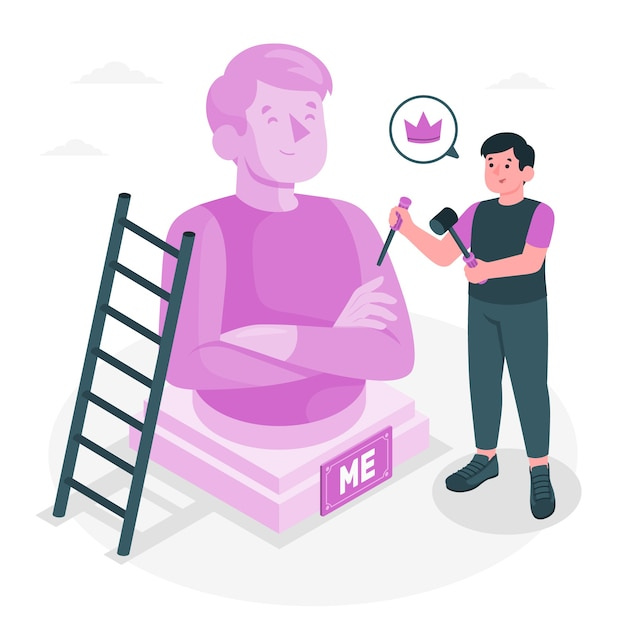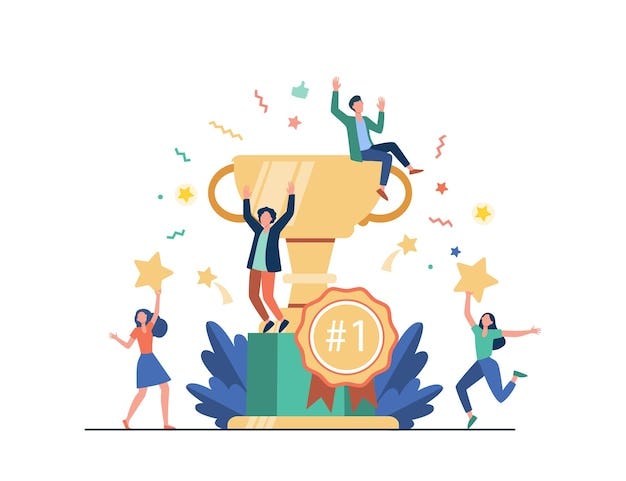Bengaluru
FC 222 on Will-Power struck a chord with many readers.
Tarun Kunzru says: "’Where there is a will, there is a way’ and ‘Where there is no Will there is disarray’. Pras, thanks for driving home the point of ‘Willpower’.”
Lakshmi Raman says: “This edition of FC is pretty serious but also informative. I have you to thank for making my Will. I didn't know a married couple could make wills together. And you know, Prasanna, where there's a will, there's a won't—the 'won't make a will' are in larger numbers as they believe they won't die; only others will die!”
Atul says: “An excellent summary on making a will and its decisive advantages. The same advice was provided. I would add only a few things. First, not only can a Will be amended by the testator during his lifetime but he can revoke a Will at any time during his lifetime, secondly, a Will does not require a stamp or stamp paper—ordinary paper will do. Thirdly, an attesting witness cannot be a beneficiary under the Will—that invalidates the Will. Excellent summary Pras!!!”
Karthik says: “This is a really interesting topic that I did not know much about. In a life that is becoming increasingly uncertain, so much so that when one leaves their house in the morning, there is no guarantee of returning in the evening, this becomes an extremely critical document. This begs the question of what happens if the executor of the will also passes away or is completely indisposed. Maybe this will be covered in the next chapter. Thanks for another enlightening post!”
💡 Ego a Knowledge Barrier?
James Clear writes about habits, decision-making, and continuous improvement. You can learn more at 🔗://jamesclear.com/. I was unaware of the subject matter of his work until my daughter sent me one of his quotes: “The only thing preventing you from learning is your ego.” This set me thinking, and I decided to share my thoughts on how ego can blindside one into believing that if there is something to know, it is not worth knowing.
There are ‘know-it-all’ guys. They will say “that I know” to anything worth knowing that anyone might say to them. I am reminded of a scene from a Tamil movie, the name of which eludes me.
In a particular scene, a lady, Thangalachmi (TL), goes to the lady next door (akka, meaning sister) to learn how to make pooris. The dialogue between TL and Akka goes like this. (They are of course more hilarious in Tamil.)
TL: Akka, how to make pooris?
NN: Measure out the required quantity of wheat flour
TL: O! That I know
NN: Put a little salt, sugar and a bit of oil
TL: O! That I know.
NN: Mix the dough with warm water
TL; O! That I know
NN: Let the dough sit for a while
TL: O! That I know.
NN: Now make little balls of dough
TL: O! That I know.
(by now NN is cheesed off with the know-it-all TL)
NN: Next you keep water in a cauldron and bring it to a boil
TL: O! That I know
NN: Drop the balls one by one into the boiling water
TL: O! That I kn…..what are you saying akka? Fooling me ya?
In the process, the tutorial got derailed.
The ‘I know it all’ attitude becomes a self-erected barrier. It inhibits the need to know, even if someone volunteered to impart some knowledge. The psyche of the ‘know it all’ person is to live in denial—to deny that he does not know everything that is to be known in a given situation or about some subject matter.
Some people are always ready and open to learning something. Even if they realise they know something, they continue to engage in the conversation to see if there is something that they may have either missed or if there is a nuanced approach to a particular matter. If you are planning to visit Turkey, for example, you could speak to more than one person who has been there to know more about that country and what you need to be concerned about. You may even satisfy yourself that the geo-political tensions in that area aren’t serious enough to shelve the idea of visiting that country.
Inquisitiveness is the antithesis of ego. It is an enabler. People go in search of knowledge, information or some data. In contrast, the ego is a disabler. Consequently, if you disable the disabler you enable learning. All of us can and like to learn but being judgemental or egoistic inhibits that desire to learn.
Some people have a closed mind. They refuse to acknowledge that there is more to learn. This happens even when evidence is presented to them to show that there is something more than what they assumed exists. This attitude smacks of the Ostrich Syndrome. To know more about what it means to be an ostrich, please read 🔗FC 155.
A large ego can make it difficult to accept criticism or feedback. Similarly, people who have inflated egos find it difficult to accept alternatives or new ideas. The ego does not allow the free flow of knowledge. The pre-existing knowledge stagnates and will soon be dated. What I learnt in law school in the 70s is a far cry from what is taught in the law schools of today. But what I know today is the product of consistent learning and updation. No wonder both medicine and law are practices.
Ego controls our mind and leads us to believe that we are right. It prompts us to deny even if we are wrong. We expect people around us to agree with us and in the process, deny ourselves the opportunity to appreciate different and differing points of view.
If we have a fixed mindset we are unlikely to be receptive to new thoughts, new ideas and new theories. In contrast, a growth mindset helps us not just be receptive to new thoughts or new ways but go out and seek them. This is one reason why we attend training programs or refresher courses. I attended courses at Kellogg and Harvard not for the fancy of it but for the reason that I wanted exposure to newer thoughts and newer ways of doing things in an international context.
Ego, besides inhibiting learning, inhibits unlearning. All of us learn and unlearn all the time without being aware of it. We may also find unlearning to be harder than learning. The famous adage ‘old habits die hard’ is an endorsement of this apprehension. I feel that refusing to unlearn is far more serious than refusing to learn. The reader will agree with me if I present a few facts:
Knowledge and skills do get outdated and become irrelevant.
Recognising the outdated and the irrelevant ignites the passion to learn afresh
Survival is dependent on being current.
We were doing many things manually until technology took over. We learnt to handle word processors and with each technological breakthrough came new opportunities to unlearn and learn. When you learn to do differently, you unlearn without being aware of it. Senior citizens have displayed child-like curiosity toward the fascinating features of a smartphone, which, among other things, replaced the landline. The rotary dial of the telephone instrument is now a thing of the past. The finger that dialled many times to get a number, can now do it in one touch.
An interesting thought occurred to me. If academic learning is inhibited by ego it seems to encourage learning new tricks in competitive sport. The egoistic desire to be at the head of the pack makes the person train hard and aim to win. For competitive people winning and being the best in their field make them feel good about themselves. Coming in second place or below hurts their ego and sense of pride. But some people take part in competitions with the spirit of participation and are not unduly perturbed by the result. For such people, inclusiveness is a lot more important than winning.
This will also tell you why some excel in the classroom and some in the field. There is no ego clash here. Each one recognises what he is good at and continues to focus on it. What bothers me is the ego of parents playing out on the accomplishments of their children. Regardless of the abilities, limitations and other factors, some parents want their children to excel, whether it be in academics or sports, just as they did. This can have a negative effect and the children may develop an inferiority complex. The ego is not a bad thing if it is channelised in a practical way to accomplish the goal provided, if the outcome is not what was expected, it does not bruise the ego.
The 10th of November 1989, marked the beginning of the breaking down of the Berlin Wall. A wall that symbolised political egos that were the cause of misery to many. The wall, as it came down, brought to ground the egos on either side which had collaborated to create this monstrosity.
Now in a lighter vein:
As the couple approach the altar, the priest steps up and gives the best speech anyone has ever heard. He's full of confidence, incredibly expressive and has everyone in fits of laughter!
After the vows, the priest is extremely shy and barely says a word to anyone.
The groom approaches him and asks, "Why are you so shy? You seemed like a different person when you were giving that speech!"
"I know..." Says the priest, "but that was just my altar ego".
Dear readers, I have shared my perceptions about ego and egoists. Please do write in with your comments. Until next week, please take good care of yourselves. Ciao!






This is an excellent write up on "ego" . The conversation between the neighbours on the process of making 'Poori' is a classic example of how the ego of a person could annoy the other and defeat the very purpose of learning. I recall an adage "We know what we know; but we do not know what we do not know". I, at the age of 82 keep learning new things from people regardless of their age and status since I know my limitations to cope up with this modern world of technology and AI. The classic Tamil text "Tirukkural" says " Katrathu kaiman alavu; kallaathathu ulagalavu" which means that what we have learnt is just handful and what we have not is of the size of the universe!
I guess, if one needs to fix a problem the starting point is recognising you have a problem.
Likewise, in order to be 'always learning' it's critical to recognise our knowledge is far from complete and will never be complete, given everything is changing/evolving all the time. So being a student lifelong is an essential ingredient for remaining young and relevant.
In other words "Ego" will stop you from seeking and quickly make you irrelevant and lonely!! I have seen that with some 60 plus people.